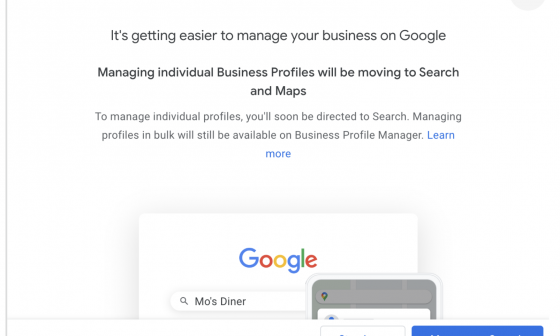Local SEO is becoming an essential part of doing business. With more customers relying on search engines for information and purchase decisions, it’s important that every business works hard to maintain their digital presence. It takes a lot of hard work, some strong tools, and above all, consistent maintenance to get the job done.
Aside from what you read online and what you’ve probably been taught about local search, there are some quick tips that can help you take your business to the next level. We’ve created an expert roundup of Local SEO hacks used by the biggest names in the industry. They have offered their insights on what it takes to do business in the digital era.
- Phil Rozek
- Mike Blumenthal
- Joy Hawkins
- Mike Ramsey
- Casey Meraz
- Andrew Shotland
- Nick Rink
- Julius Kurushko
- Adam Steele
- A.J. Ghergich
- Eduard de Boer
- Chris Campbell
- Ashwin Ramesh
- Mary Bowling
- Michael Borgelt
Phil Rozek

Here are some of my favorite local SEO “hacks” – in no particular order:
- Use my technique for finding Meetup.com groups that need sponsors. You can do a good deed and get a nice link on their “Sponsors” page if you sponsor them. All you do is type in this query:
site:meetup.com “this group does not have sponsors right now” city name or keyword
- Uncover NAP info you might not know about by checking a business’s BBB page. (More detail here.)
- Use Andrew Shotland’s NAP Hunter extension for auditing citations.
- Use wildcard searches for keyword research.
- Follow up with any customers who said they’d write you a review. People forget or get distracted, or maybe you didn’t give them helpful instructions the first time around. Don’t assume that won’t write you a review just because they haven’t.
- Use this tip from Joy Hawkins to find out what categories a Google Places page is using. (I find this method the easiest.)
- Try these 3 tips for encouraging reviews – especially the one about laminating the printed instructions you give to reviewers.
@philrozek from Local Visibility System
Mike Blumenthal
The best hack (and it really is no hack at all) in the Local Search space is to
1) Run a great business and,
2) Leverage every opportunity to make that obvious to your existing and potential customers in a way that isn’t perceived as pushy or over selling.
No one said it was going to be easy. Running a great business is hard work. Using social proof effectively is hard work. But the payoff in terms of increased conversions and more importantly retention is immense.
Client feedback is at the center of this process as you can’t improve what you don’t measure. And reviews are the public lever that allows you to highlight what a great business you actually are.
The feedback you receive will help you improve your business, can be used as testimonials to help with SEO and your happy customers can then be leveraged to carry the good word about your business into the marketplace via review and social sites.
Google research shows that having reviews on your Google listing will lead to a 140% bump in requests for driving directions and a 360% increase in visits to your website from Google. Who wouldn’t want that bump?
At GetFiveStars.com we wanted to understand why some businesses got reviews and others didn’t. We analyzed over 250,000 recent email requests from thousands of businesses asking their clients for feedback and reviews . What we found was that the single biggest determinant of success was being a great business. The best businesses got more feedback and consistently received reviews significantly more than businesses that were mediocre.
So while it isn’t really a hack, the best thing you can do is put in place processes to measure the quality of what you are doing, use that information to improve and then earn reviews.
@mblumenthal from Understanding Google My Business & Local Search
Joy Hawkins
One of the first places I start when trying to troubleshoot ranking issues in local SEO is to head over to Yellowbot.com. It is the best place to discover NAP inconsistencies which is a huge ranking factor that impacts ranking on Google for local businesses. As an example, I picked a random insurance agent in Seattle, went to Yellowbot.com and input their phone number into the “What” field and put Seattle into the “Where” field.
As you can see below, I can already tell that there are several different business names and addresses associated with this phone number. Some list him at 170 Denny Way, some list him at 7 Denny Way, and some list another insurance agent (Latannia Fair) at 881 Pulaski Hwy in Delaware (not even the same state).

If I open up the listing that shows the agent in Delaware, I can see below that Yellowbot is pulling in this data from MerchantCircle and if I open that listing up, I can see the incorrect data listed there. This gives me a starting point of where to look next.


If I open up the first listing in Yellowbot as you can see in screenshot below that lists them as “Allstate Insurance Co”, I will do the same thing and open every link to other directory listings that is referenced in the information section, business description, and reviews section. Yellowbot is pulling data from several authoritative local directories and I want to see if all of them are sharing the same NAP data. As it turns out, the CitySearch, along with several others, are using a different phone number.

@JoyanneHawkins from Imprezzio Marketing
Mike Ramsey
My best hacks for Local SEO are as followed:
- When it comes to citations get the most important places right and don’t spend your time worrying about obscure directories. Google has a few direct relationships that you can see on the wonderful Local Search Ecosystem graphic and that is where you should focus starting with Infogroup.
- Local Landing Pages matter and for service area business there are great ways to create content around every single city and suburb you serve. That is the fastest and easiest way to increase your organic traffic. While lots of people fight over a few maps spots on one or two keywords we are spinning circles around them by building out tons of local content for the areas of service.
- Links for things – Local link building is all about helping people your community out. Sponsor events, offer scholarships, shares tips, do service, and instead of getting a plaque just ask for a link. Also, local media is much easier to get links from compared to national websites.
4. Facebook Ads for local drive serious traffic extremely fast. You can read about a few of my experiences with this piece on local content marketing.
@MikeRamsey from Nifty Marketing
Casey Meraz
One simple hack that people in local search tend to not pay too much attention too is actually seeing what Google Values as strong citation sources. For example, if you were to Google the NAP of a business you should take a good look at the results and where they’re ranking. When doing competition research you can see which sites Google is putting a lot of worth into. A new one on the citation block is Amazon Local. Companies who have their NAP listed on a strong website like Amazon are seeing some ranking benefits from taking advantage of this service.
@CaseyMeraz from EthicalSEO
Andrew Shotland
Our favorite local SEO hack over here is NAP Hunter – http://www.localseoguide.com/nap-hunter-lite/ – a free Chrome extension we built to speed up the analysis of NAP issues in Google. You just pop a business name, address and phone number, hit go, and the extension pops up multiple tabs with different Google queries that you can export to .csv. It can save a huge amount of time and uncover a lot of hidden issues.
@localseoguide from Local SEO Guide
Nick Rink
When it comes to local SEO building a solid foundation should be fundamental to any campaign. That starts with your basic local on-site optimisation and checking the major citation sites for wherever you are, including Apple Maps. Those tasks can sometimes take a little while to have any impact so it’s handy to look for potential quick wins. A couple of the first things we do are to add Schema and also research categories on competitor Google My Business (Google My Business Audit For Local Success) listings.
Schema
At the outset, adding Schema to a client’s website can seem a little daunting but it’s actually quite simple. We tend to prefer using JSON-LD now so if you’re looking for a complete guide then check this one out. Don’t forget the “Additional Type”, e.g. orthodontist, which can often give a little rankings boost. Use Google’s own testing tool to make sure you’re error free before loading up the code.
GMB Categories
Use MapMaker to check out all the categories that Google has picked up for your client’s competitors and then make sure you add those that are relevant to your client’s Google My Business listing and citations. Quite often some fairly obvious ones are missing.
@NickRink from Smart Local Marketing
Julius Kurushko
Use your competitors’ mistakes to your advantage. If you are looking to rank for a certain keyword, scan top 10 sites that rank on the first page for broken links using http://www.brokenlinkcheck.com/. Often times you will find broken links with misspelled domain names in their posts or pages. Register misspelled domain, redirect it to your page, ping that page via pingomatic.com (wordpress) and watch your ranking “rise”. 😉
Julius from Free Review Monitoring
Adam Steele
People always complain about not being able to get something changed in Google My Business. What 9/10 folks aren’t doing, is they don’t know to, or don’t call Google. Google provides a way to call them here. If you don’t get someone intelligent, hang up and call again. Rinse and repeat.
If you don’t have an address for your business, but still want to compete in Google My Business, AND don’t want to use your home address consider a coworking space. If you are a Google law abiding citizen, as long as you are working out of the coworking joint, and can see a client there…then it’s all good. Plus, these spots don’t get the heat (IMO) that other similar places get for being…’virtual.’ They are popping up all over, usually single location and pretty affordable.
Look beyond your typical local business directory citations. Don’t stop there! A citation can be anywhere, including alongside any other link building efforts you’re engaged in. When you get a new link, see if you can include a citation, and vice versa.
People aren’t getting that a strong organic standing is a big part of good local (Google My Business) ranking. If you can’t figure out why you aren’t ranking locally, and you aren’t on page one organically…well you know.
@AdamGSteele from Loganix
A.J. Ghergich
A local SEO hack that just came out is the ability to see how busy a local business currently is on Google search.
https://plus.google.com/+google/posts/QY1c97V25Tz people will use it to avoid long lines. However, a smart marketer will use it to know when the best times to deliver content are, spy on their competition and run ads at the perfect moment.
https://lh3.googleusercontent.com/-WQVsHAq85yk/VbeU2IFRpHI/AAAAAAADJuA/6ZsNTITRVv8/s506/coffee2.gif
@seo from Ghergich & Co
Eduard de Boer
I came up with what I think is the quickest citation people from most countries in the world can create with the least amount of effort and without a verification step. What’s even better: this citation won’t be rejected and will be indexed quickly!
I’m talking about an international phone directory, called “Tellows”. Tellows allows users to register the level of trust / authority in phone numbers (or lack thereof), together with a comment.
There lies the opportunity: the comment! My advice is to use the comment field to create a complete citation with all your NAP data. This literally takes less than one minute…
The steps are:
- Surf to www.tellows.com
- Choose your country in the upper right corner
- Enter the number and click on the [Search] button
- Enter your name or a pseudonym
- Enter the company name
- Select the option that the number can be trusted in the field “reason”
- Then select option 1: Highly trusted as your rating
- In the comment field, enter the full NAP
- Enter the captcha and submit the details
Now head to Tellows and create another citation in a few seconds! Good luck!
@TweetEduard from WhiteSpark
Chris Campbell
One local SEO trick that I’d like to share involves the proactive management of online reviews, which savvy search marketers have begun to fully embrace.
On-site optimization and link management remain fundamental to every strategy, but when it comes to local SEO, review management — claiming your review site profiles, responding publicly to online reviews, encouraging customers to review your business — delivers positive ROI and should definitely be part of the mix.
Research has shown that reviews are one of the 5 most important ranking factors in local search. That goes for Google and for other search engines like Yahoo and Bing, which also display reviews and ratings in local search results. Moreover, content found in reviews are two times more trustworthy than social signals like followers, likes, and retweets. Reviews also happen to drive visibility in local map searches. For example, if you have 40 reviews on Google, the pin that represents your business on Google Maps will likely be bigger than that of competitors with fewer reviews.
So it makes sense to stay on top of what customers are saying on sites like Yelp, Google+/Google Maps, TripAdvisor, and Citysearch. The first step is to claim your business profiles on all relevant review sites and ensure that the business information is accurate, up-to-date, and complete on all these profiles. Your review management efforts should also include responding to reviews as well as encouraging happy customers to post reviews. Not only does this help strengthen your brand reputation; new reviews and responses also serve to produce fresh, dynamic content, which search engines love and reward with better rankings.
@chrisrcampbell from ReviewTrackers
Ashwin Ramesh
In my opinion, the biggest hack when it comes to Local SEO is to stay on top of everything that’s happening. There’s no one hack, and even if there is one, it isn’t relevant all the time. Google seems to like to throw the aviary at Local SEO-ers in general and you should know how to deal with these birds (a-la pigeon)
To stay on top, I’d suggest subscribing to the following forums and groups:
Max Minzer’s Google+ Community
Another thing I’d recommend is creating a list of Local SEO-ers on Twitter and reading their updates daily. If you’re feeling lazy, you can subscribe to my list of pros on Twitter.
@ashwin_ramesh from Synup
Mary Bowling
The right tools will help you do your work faster and better. What’s right is going to vary, but some of the ones I like are Whitespark’s Local Citation Finder, Moz Local. Moz’s Local Category Research Tool and Places Scout.
@MaryBowling from Mary Bowling
Michael Borgelt
Geo Enriched & Keyword Enriched Photos – shareable to other sites, like Pinterest & FlickR to help reinforce Geo Location
Optimizing Pinterest – post pictures from blog, and link back to website
Localized Content on Website – for example:
- Talk about location within the contact page, i.e. “Our shop is located off 12th Street in Denver, two blocks south of King Soopers, across the street from Whole Foods…”
Google Local competitors and find out which directories are showing up for their business, and add [your] business to those same directories
Keyword Phrase Target Hashtags on Google+ – link back to a blog post that pertains to that keyword phrase
Making sure that you are listed in directories that rank 1-20 for all you target keywords.




